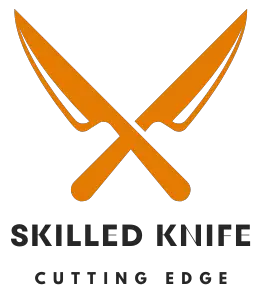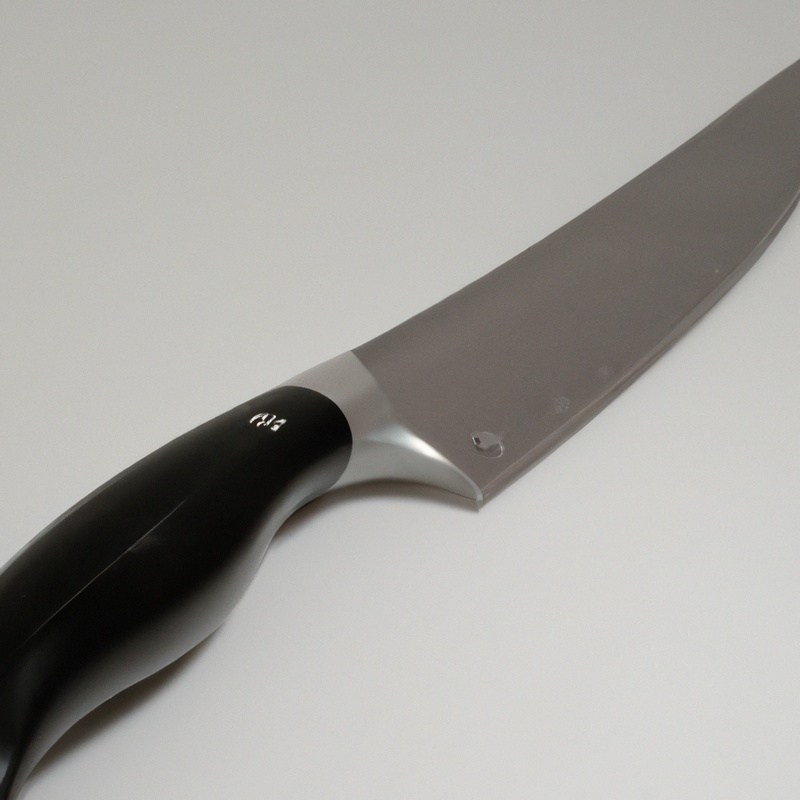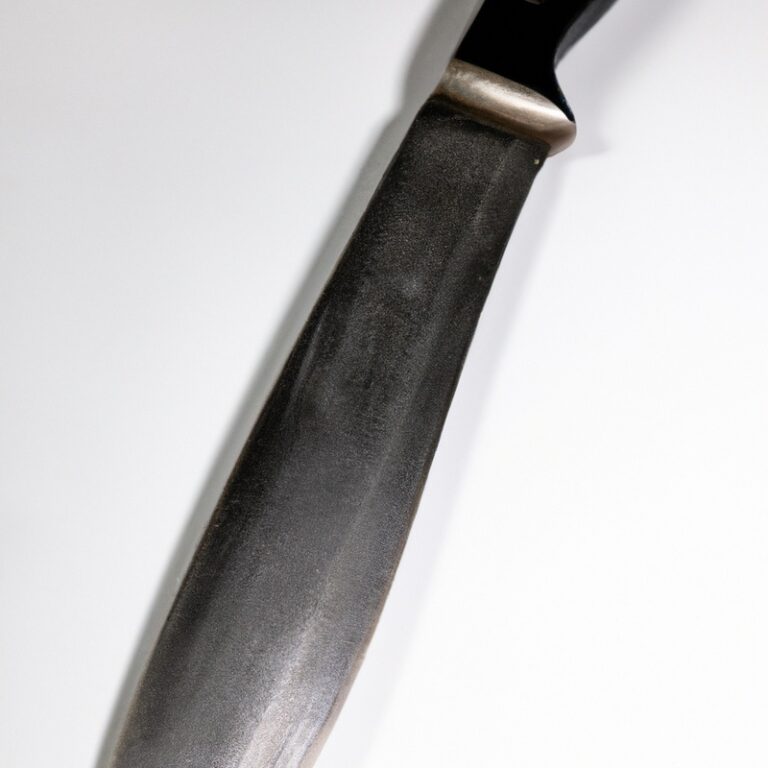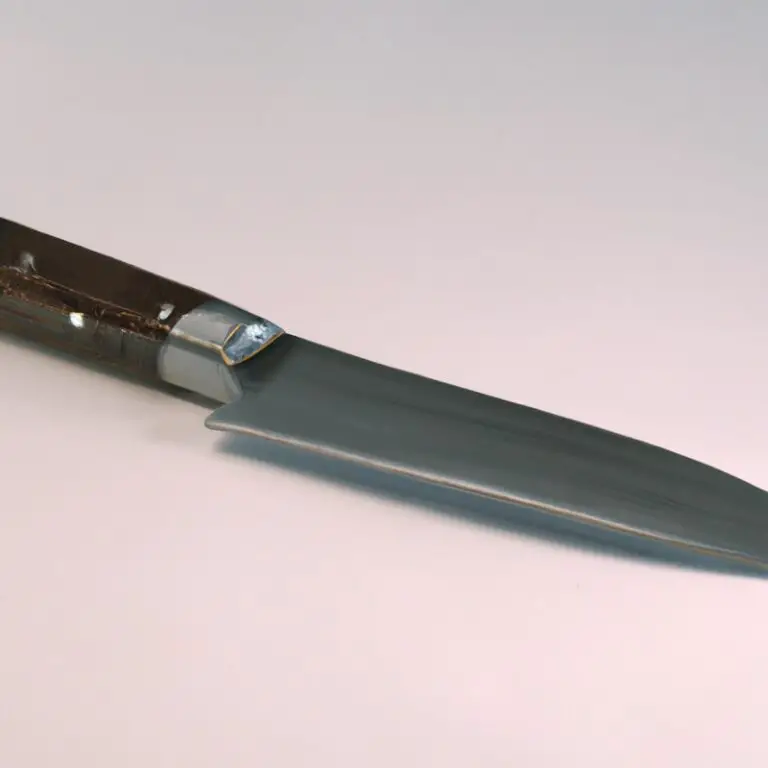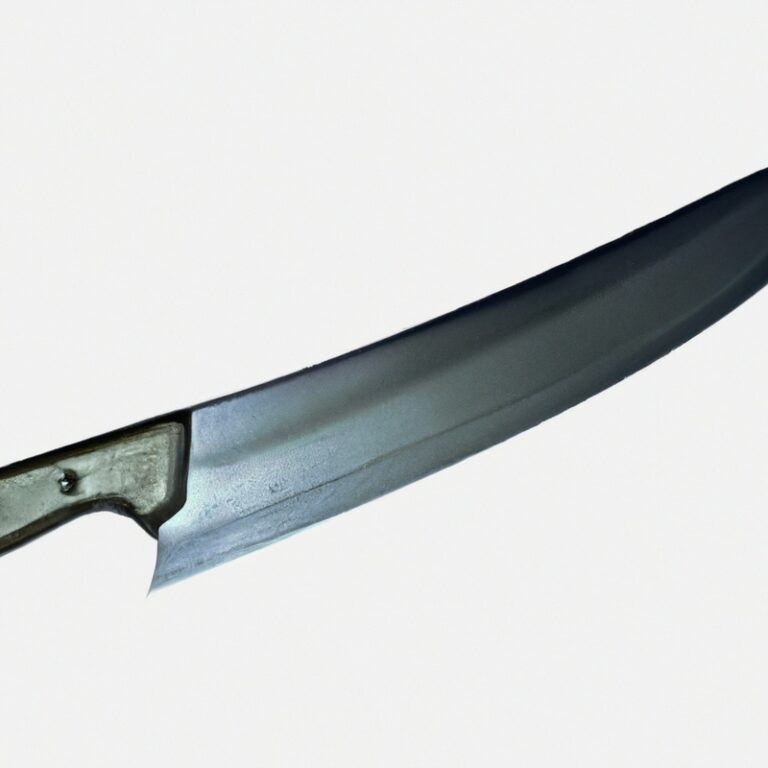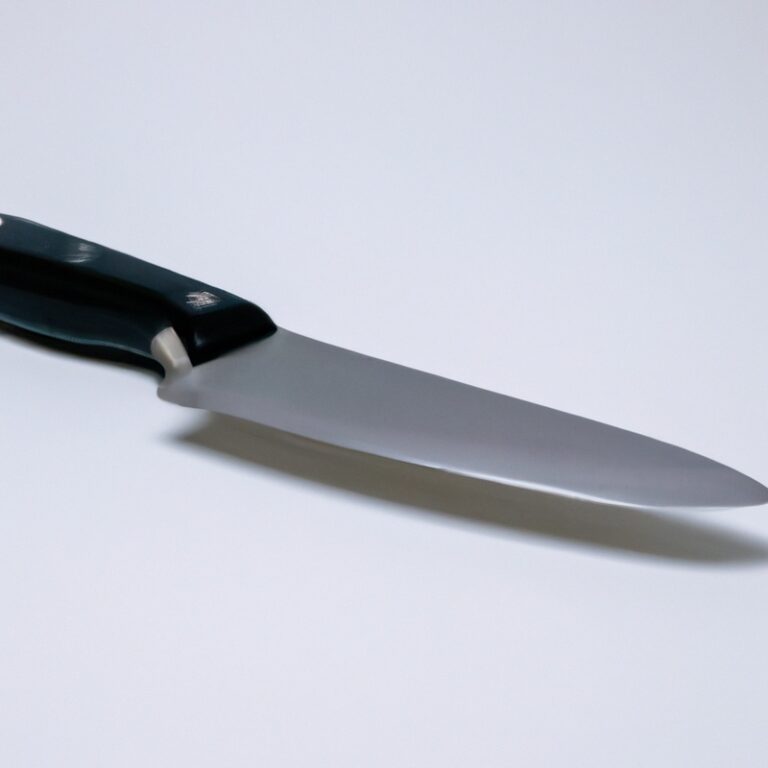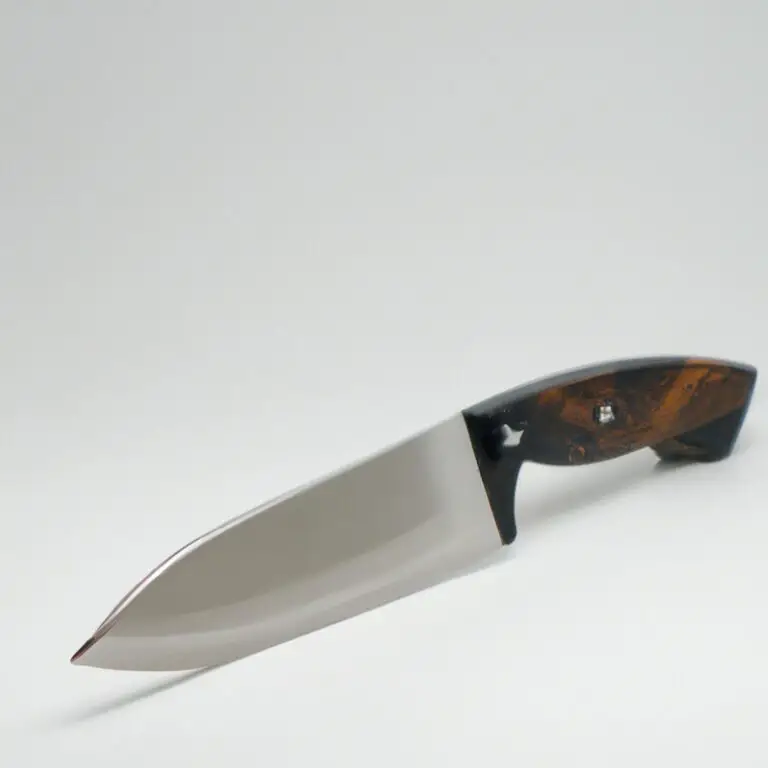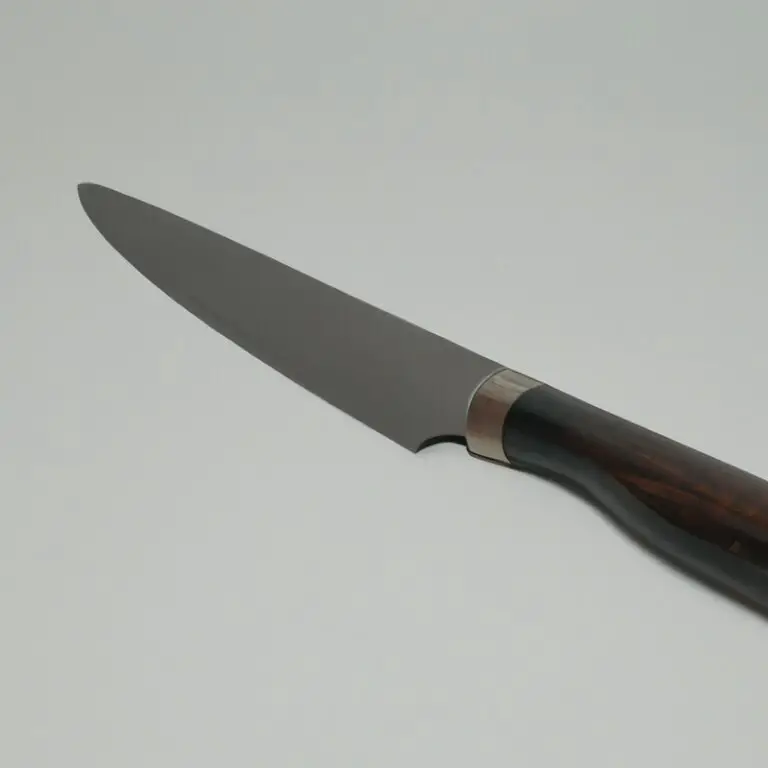Which Knife Steel Is Most Suitable For EDC (Everyday Carry) Knives?
Key Takeaways:
- High-quality stainless steel, such as S30V or 154CM, is recommended for EDC knives due to its corrosion resistance and durability.
- Damascus steel offers an attractive and unique appearance, but may not be the most practical choice for everyday carry due to its lower corrosion resistance.
- Choosing the right steel for an EDC knife depends on individual preferences, such as desired sharpness, ease of sharpening, and budget constraints.
- Consider factors like edge retention, toughness, and the intended use of the knife when selecting the most suitable steel for an everyday carry knife.
Are you tired of carrying around a subpar knife that just doesn’t cut it?
When it comes to everyday carry knives, the type of steel used can make all the difference in terms of performance and durability.
So, which knife steel is truly the cream of the crop?
Join me as we embark on a steel exploration journey, where we’ll dive into the pros and cons of stainless steel, carbon steel, tool steel, and even the eye-catching Damascus steel.
We’ll also explore the key characteristics to consider, such as hardness, corrosion resistance, toughness, and sharpness retention.
By the end of this guide, you’ll have all the knowledge you need to select the perfect knife steel for your everyday carry needs.
| Knife Steel | Pros | Cons |
|---|---|---|
| AUS-8 | Good balance of toughness and edge retention | Less corrosion resistance compared to higher-end steels |
| VG-10 | Excellent edge retention | Relatively expensive |
| S30V | Very high corrosion resistance | Can be difficult to sharpen |
| 154CM | Good combination of edge retention and toughness | Lower corrosion resistance compared to other stainless steels |
| D2 | High wear resistance | Needs regular maintenance to prevent rusting |
Types of knife steels commonly used for EDC knives
Stainless steel: Benefits, drawbacks, and popular options for EDC knives
Stainless steel is a popular choice for EDC knives due to its many benefits.
It is highly resistant to corrosion, making it ideal for everyday carry in various environments.
Stainless steel is also known for its durability and strength, making it capable of withstanding tough tasks.
Additionally, it is easy to clean and maintain.
However, stainless steel may not hold its edge as well as other types of steel, and it can be more difficult to sharpen.
Popular options for stainless steel in EDC knives include 8Cr13MoV, VG-10, and S30V.
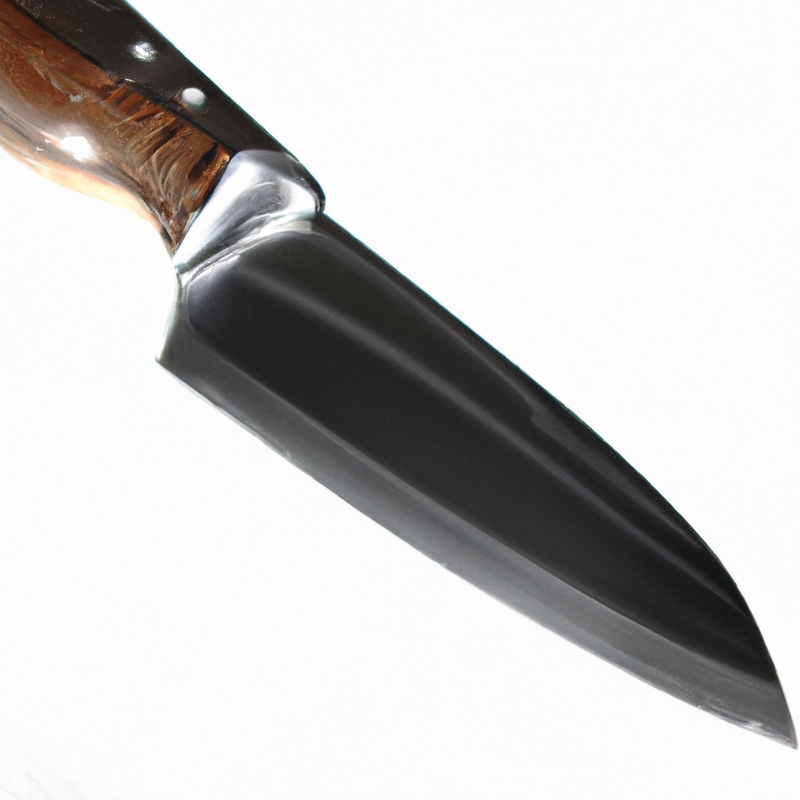
Carbon steel: Advantages, disadvantages, and popular choices for EDC knives
Carbon steel is a popular choice for EDC knives due to its advantages. It offers excellent sharpness and edge retention, making it ideal for everyday tasks.
Carbon steel is also easy to sharpen and provides great cutting efficiency.
However, it is prone to corrosion, so proper maintenance is crucial. Popular carbon steel choices for EDC knives include 1095 and A2.
Overall, carbon steel is a reliable option for those who prioritize sharpness and edge retention in their everyday carry knives.
Tool steel: Characteristics, pros, cons, and suitability for EDC knives
Tool steel is a popular choice for EDC knives due to its durability and strength. It is known for its high hardness and resistance to wear, making it suitable for everyday use.
The pros of tool steel include excellent edge retention and toughness, allowing the knife to withstand heavy use and demanding tasks.
However, tool steel can be prone to corrosion if not properly maintained, and it may require more frequent sharpening. Overall, tool steel is a reliable option for EDC knives, especially for those who prioritize durability and performance.
Damascus steel: Overview, aesthetics, and considerations for EDC knives
Damascus steel is a popular choice for EDC knives due to its unique aesthetics and impressive performance. It is characterized by its distinctive pattern, created by layering and folding different types of steel.
This results in a durable and visually appealing blade.
Considerations for EDC knives with Damascus steel include maintenance, as it can be susceptible to rust if not properly cared for. Additionally, the cost of Damascus steel knives tends to be higher compared to other options.
However, the beauty and performance make it a worthy investment for knife enthusiasts and those who value both form and function.
Comparing different knife steel characteristics for EDC knives
Hardness: How it affects the performance of EDC knives
The hardness of a knife steel greatly impacts the performance of EDC knives. A harder blade will generally hold its edge better, meaning it stays sharp longer.
This is especially useful for everyday tasks like cutting rope or opening packages.
However, a very hard blade can also be more prone to chipping or breaking, so it’s important to find a balance. Different knife steels offer varying degrees of hardness, so it’s essential to consider how you’ll be using the knife before making a choice.
Corrosion resistance: Importance and its relationship to EDC knives
Corrosion resistance is vital for EDC knives as they are subjected to various environmental conditions and moisture on a daily basis. A knife with poor corrosion resistance can rust, leading to diminished performance and potentially rendering it unusable.
It is important to choose a knife steel that offers good corrosion resistance to ensure longevity and reliability.
Popular stainless steel options such as 440C, S30V, and VG-10 are known for their corrosion resistance, making them excellent choices for EDC knives. Proper maintenance, including cleaning and drying the knife after use, can also help prolong its corrosion resistance.
Toughness: Why it matters and its relevance to EDC knives
Toughness is an important characteristic to consider when choosing an EDC knife.
It refers to a knife’s ability to resist chipping, cracking, or breaking under high stress or impact.
In everyday carry situations, your knife may be subjected to various tasks such as cutting, prying, or even accidental drops.
A tough knife with good impact resistance ensures that it can withstand these challenges without failing or becoming unusable.
When your knife is tough, you can rely on it to perform reliably and withstand the demands of everyday use.
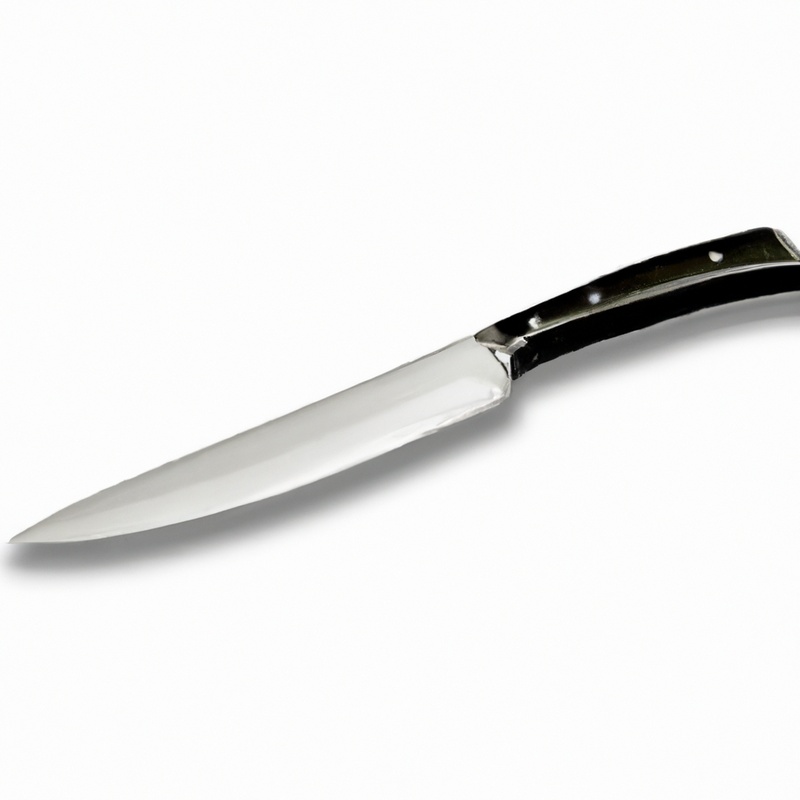
Sharpness retention: What to look for in knife steel for EDC knives
When choosing knife steel for EDC knives, sharpness retention is a key factor to consider. Look for steels that have high hardness and excellent edge retention.
Steel types like CPM-S30V, CPM-S35VN, and M390 are known for their exceptional sharpness retention.
These steels maintain their edge for longer periods of time, reducing the need for frequent sharpening. Additionally, steels with high wear resistance, such as CPM-20CV and CTS-XHP, are also great choices for maintaining sharpness over extended use.
Selection guide for choosing the right knife steel for EDC knives
Assessing individual needs and preferences for EDC knives
When choosing an EDC knife, it’s important to assess your individual needs and preferences. Consider factors such as the intended use of the knife, your preferred blade length, and the overall size and weight that feels comfortable in your hand.
Think about whether you prioritize corrosion resistance, sharpness retention, or toughness.
Additionally, take into account your personal style and aesthetic preferences. By evaluating these aspects, you can find the perfect EDC knife that meets your specific requirements.
Matching knife steel properties to specific EDC tasks and environments
When choosing knife steel for your everyday carry (EDC) knife, it’s important to consider the specific tasks and environments you’ll be using it in.
different tasks require different properties in knife steel.
For example, if you anticipate performing heavy-duty cutting tasks, a tougher and more durable steel like tool steel or certain carbon steels could be a good choice.
However, if you prioritize corrosion resistance and ease of maintenance, stainless steel might be a better option.
Match the properties of the steel to match the demands of your EDC tasks and environments.
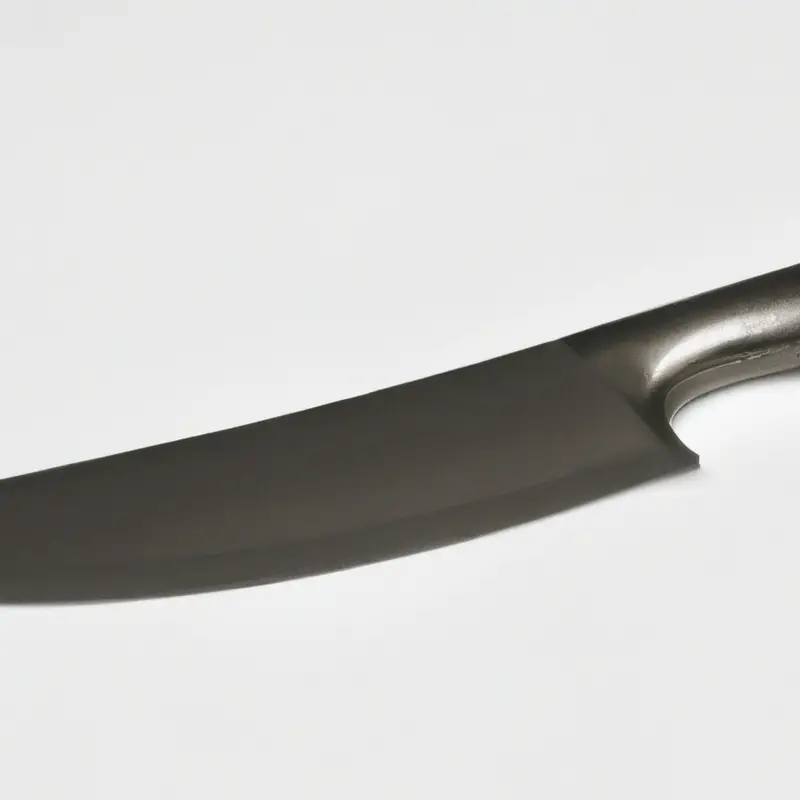
Considering maintenance and care requirements for different knife steels
When choosing the right knife steel for your EDC knife, it’s important to consider the maintenance and care requirements. Different knife steels have varying levels of corrosion resistance and may require different cleaning and maintenance routines.
Here are a few maintenance considerations for common knife steels:
- Stainless Steel: Stainless steel offers good corrosion resistance, but regular cleaning is still important to prevent buildup and maintain performance. It is generally easier to maintain compared to other steel types.
- Carbon Steel: Carbon steel requires more maintenance as it is more prone to rust and corrosion. It is important to keep the blade dry and apply a light coat of oil to prevent oxidation.
- Tool Steel: Tool steel typically has good corrosion resistance, but regular cleaning is still necessary. Some tool steels may require occasional oiling to maintain their performance.
- Damascus Steel: Damascus steel requires regular cleaning and maintenance to prevent corrosion. It is important to follow the manufacturer’s instructions for care, as Damascus steel can vary in composition and maintenance requirements.
Remember, proper maintenance and care will help prolong the life and performance of your EDC knife, regardless of the steel type. Regular cleaning, drying, and occasional oiling will go a long way in keeping your knife in top condition.
Budget considerations when selecting knife steel for EDC knives
When considering budget for EDC knife steel, it’s important to find a balance between cost and quality. Some budget-friendly options include 8Cr13MoV, AUS-8, and 420HC.
These steels may not have the same level of performance as higher-end options, but they can still provide good durability and edge retention for everyday tasks.
It’s worth noting that budget-friendly steels may require more frequent sharpening and may be more prone to corrosion. However, with proper maintenance, they can still offer reliable performance for everyday carry needs.
Consider your budget and usage requirements when selecting knife steel for EDC knives.
Final Verdict
When it comes to choosing the most suitable knife steel for EDC knives, it ultimately depends on your individual needs, preferences, and budget. Stainless steel offers good corrosion resistance and ease of maintenance, while carbon steel provides excellent edge retention and sharpness.
Tool steel combines toughness and durability, making it ideal for rugged tasks.
Damascus steel adds aesthetic appeal but may require additional care. Understanding the characteristics of different steel types and matching them to your specific requirements will help you make an informed decision.
So, consider your priorities, assess the tasks and environments you’ll encounter, and choose a knife steel that meets your EDC needs reliably.
